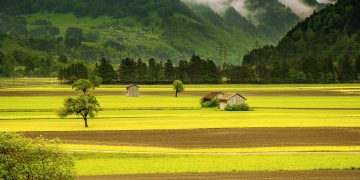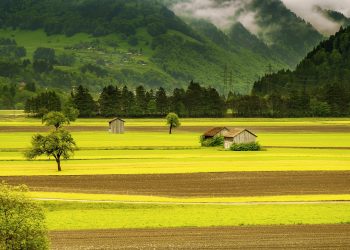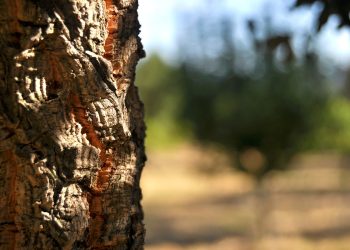[Fonte: ZAWYA] Action for agritech to more fully contribute to UN’s SDGs will need to be taken by all stakeholders from governments to financial institutions and the farmers themselvesSpecial Contributions
Although technology is transforming just about every area of life we care to consider, in the vital area of sustainable agriculture, things are not happening quite so fast.
Food has a heavy environmental impact, but although technology today is doing much to reduce greenhouse gas emissions and tackle environmental issues in other sectors, a massively fragmented food industry, with much of the world’s food production in the hands of struggling smallholders, and practical issues of costs and scale have left agricultural technology, or agritech, far behind.
There is a big challenge not just to produce food in a more sustainable way for the sake of our planet, but to keep up with feeding a global population predicted to grow to around 9 billion by 2050. It is an enormous task to bring global food systems to meet the UN’s Sustainable Development Goals when so many people around the world remain poorly nourished, farmers struggle to live beyond subsistence levels, food goes to waste and the environment suffers. Doing so will require a massive, holistic course of action involving regulatory assistance, land-use governance and infrastructure development from state and regional governments, and input from other stakeholders including banks, business, charities, educational bodies and, of course, the farmers themselves.
Increasingly prominent topic of discussion
Sustainable agriculture is becoming an increasingly prominent topic in discussions on how to green the future. The World Green Economic Summit to be held in Dubai on October 21-22, for example, will discuss how the sector can sustainably boost food production and raise yields to meet global demand, as well as the technologies being employed.
Although it is increasingly recognised that technology can make a big difference to agriculture, the contribution of the ‘Fourth Agricultural Revolution’ has to date been much more muted than for other sectors. For example, the World Economic Fund reported in December 2017 that its research showed $14 billion in investments in 1,000 food systems-focused start-ups since 2010, while healthcare attracted $145 billion for 18,000 start-ups during the same period.[i]
Agricultural technology is a multi-faceted subject, and the WEF has identified 12 major areas that could revolutionise global food production:
Alternative proteins: Partially replacing traditional sources of protein such as livestock, which today account for 15 percent of greenhouse gas emissions, with novel alternatives derived from insects, aquacultures, plants or cell cultures. One example is the burgers developed by California’s Impossible Foods which look and taste like meat but are wholly plant-based. The burgers are made by inserting the DNA from soy into a genetically engineered yeast and then fermenting the result, which produces the ‘heme’ molecule which makes meat taste like meat.
Food sensors: This combines spectroscopy with computer vision to analyse food with respect to quality, safety and authenticity. The data this presents could if it became widely available improve on existing sell-by and use-by dates and so dramatically reduce household waste, as well as preventing food fraud such as the European horsemeat scandal of 2013 and identifying any harmful bacteria and viruses.
Nutrigenetics: This technology analyses a person’s DNA in order to work out their optimum nutritional intake. Doctors’ and nutritionists’ ability to thus provide tailor-made diet recommendations could make a significant contribution to improving health, and could have a particularly beneficial impact in combatting obesity.
Mobile services: Providing a huge range of digital tools and services via mobile phones for the agricultural sector such as ease of access to financial services, agricultural information, supply chain information, and markets. Farmer can. For example, receive audio and text messages regarding on weather forecasts, crop calendars, advice on irrigation and fertiliser, and on market price, seeds and inputs.
Data analytics for insurance: By using big data and analytics, financial institutions can lower transaction costs and mitigate agriculture-related risk, which helps farmers with investments, efficiency, nutrition and income.
The Internet of Things: Allows farmers to track produce through the supply chain and control transport and storage environments in real time. It can also provide consumers with nutritional, environmental and other information about the food they buy.
Blockchain: Promises many advantages, including cutting transaction costs and the time needed to process payments. Blockchain could also be used to prevent food fraud, stop illegal production, and reduce produce recalls and losses.
Precision agriculture: Improving efficiency, profitability and sustainability through technology, automation, robotics and decision-support technologies, which take some of the guess-work out of agriculture. In 2017, Hands Free Hectare, an experimental farm in the UK, harvested about 4.5 metric tons of spring barley from the world’s first robotically tended farm. Everything from sowing to fertilization to collecting samples and harvesting was done by autonomous vehicles on the farm.[ii]
Gene editing: Genetically modified foods promise to vastly increase crop production yet there are significant hurdles to overcome before this can happen. One is the risk of the technology being concentrated in the hands of large monopolies in developed countries. There are also perceived dangers in terms of public health and biodiversity.
Microbiome technologies: Identifying beneficial microbes that can then be used to coat seeds and plants so that they become more resilient to drought, temperature, nitrogen levels, soil composition and insects could revolutionise modern agriculture. Besides massively boosting crop production and reducing losses, the reduced use of fertilisers the technology entails would lead to a significant reduction in greenhouse gas emissions.
Biological crop protection and micronutrients: Replacing chemical pesticides and fertilisers with biopesticides and micronutrient soil additives would be popular with consumers, and has the potential to increase crop production levels while reducing emissions. However, much needs to be done to ensure biologicals don’t come with their own attendant risks such as inadvertent damage to biodiversity.
Off-grid renewable energy generation and storage: If these technologies could be made available to the millions of farmers in developing countries who lack access to electricity, access to cold storage would prevent food losses and improved irrigation systems would reduce water wastage while raising production.
The promise of these new technologies is immense, yet before this can be realised there are many challenges to be overcome. One is the difficulty of achieving scale where production is so widely dispersed, especially in emerging markets. Development and commercialisation are also long and costly processes, with a high degree of risk along every step of the way. Many innovative firms in the agriculture sphere last less than five years. It is also a challenge to tie innovation in with upstream and downstream supply chain partners.
Technology in agriculture can sometimes be a hard sell for the public, too. There has been massive resistance to the development of genetically modified foods, for example. There is also the challenge of ensuring that agritech benefits farmers, consumers and the planet rather than presenting new environmental, social and ethical problems if used to maximise profit at any cost.
To help food producers overcome these challenges there will need to be a wider and more sustained governmental effort to provide support in concert with other stakeholders. Innovators will benefit from access to flexible funding, the infrastructure to support development such as technology incubator parks, enabling regulation, and academic collaboration. It will also be necessary for technological advances in developed countries to be made more readily available in developing countries if the gap between the farming haves and have-nots isn’t to widen.
If and when all these supportive factors are aligned, then the world will see a real revolution in global food production.
This topic will be discussed further at the World Green Economy Summit (WGES) on October 20-21 at Dubai International Convention and Exhibition Centre. To learn more about the World Green Economy Summit, please visit the following link http://www.wges.ae/
© Special Contributions 2019
















































Discussão sobre este post